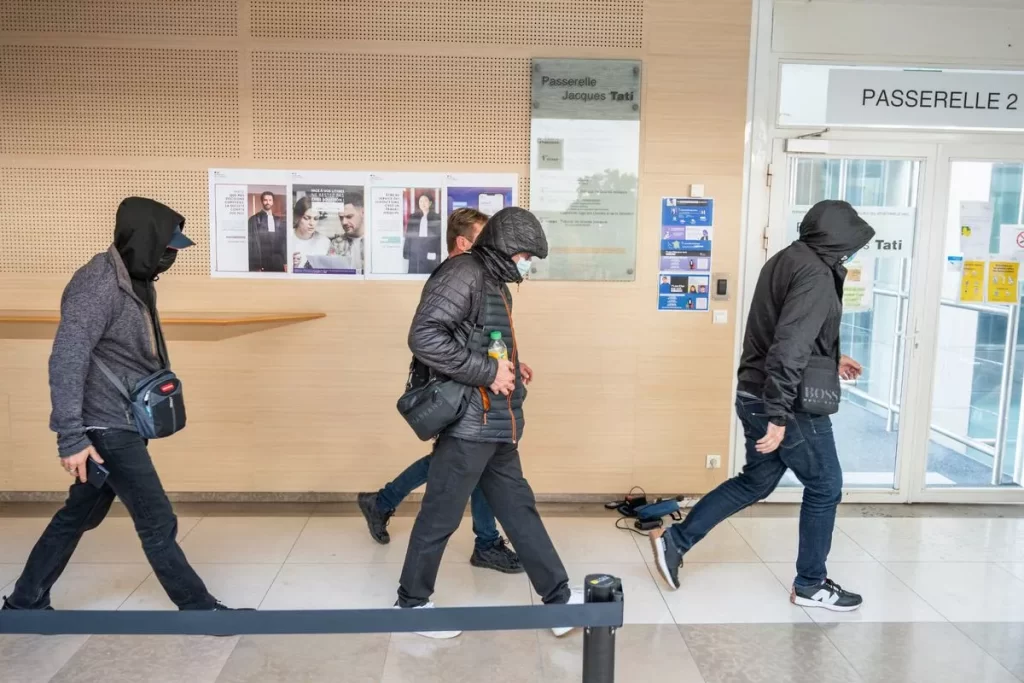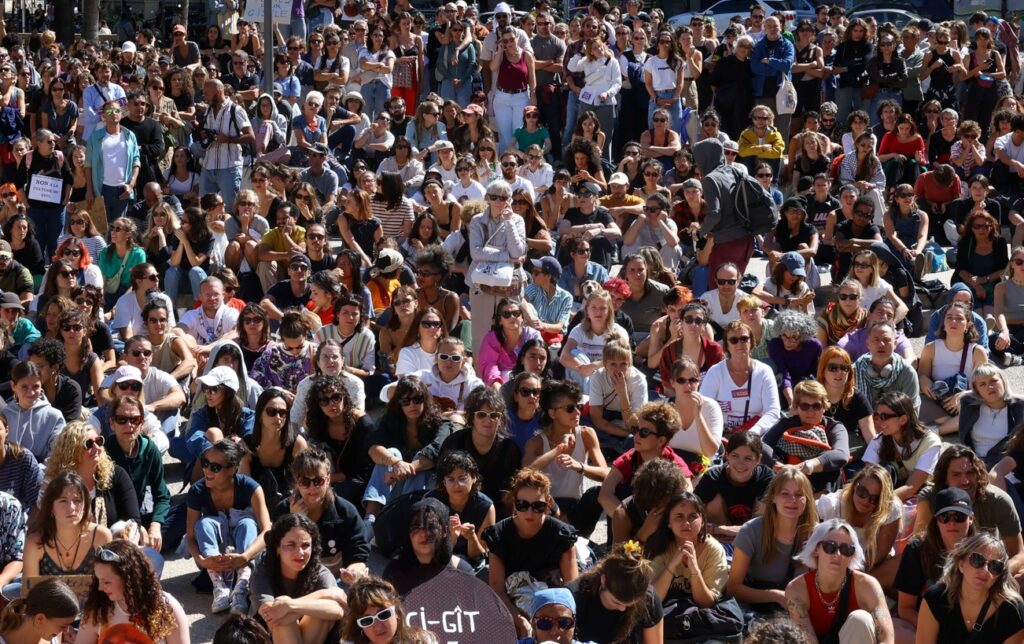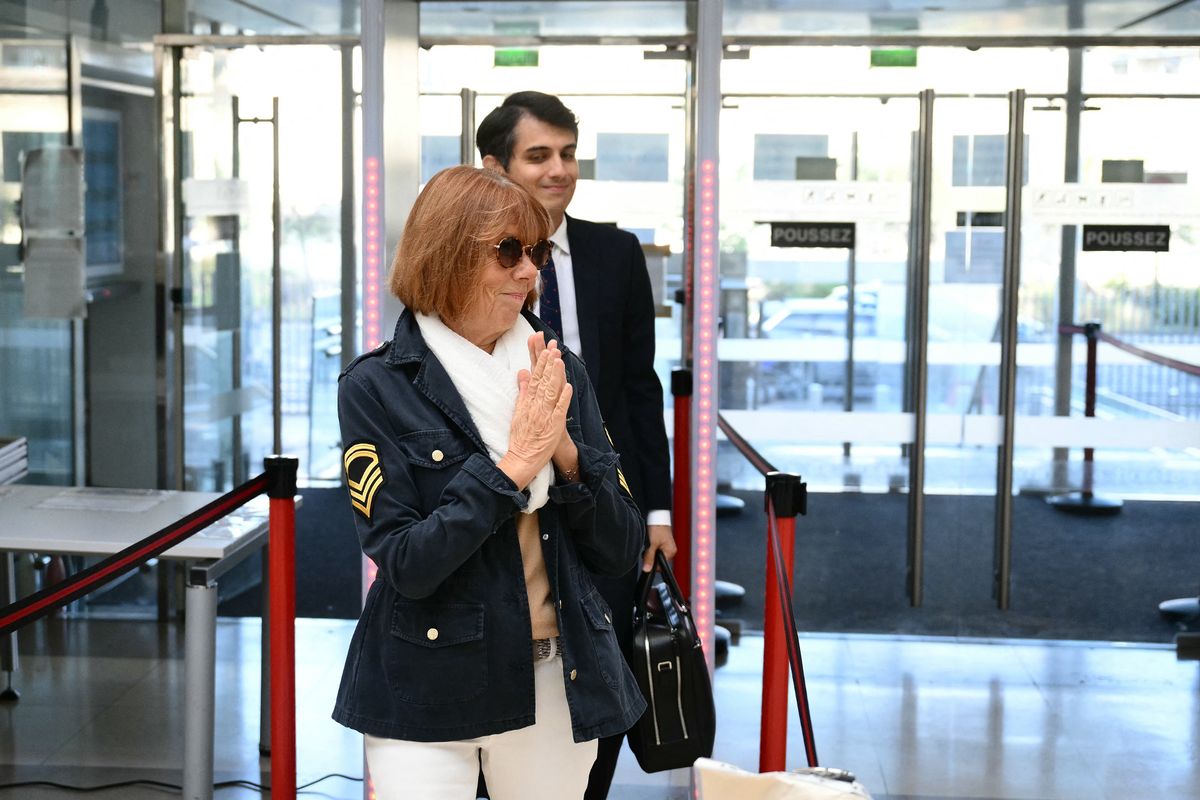A Voice for Every Woman in the Fight Against Male Violence
Every day seems to bring a new horror, another story of depravity that makes us question humanity’s capacity for evil. Yesterday, we learned that the youngest of the men accused of raping a woman, part of a group orchestrated by Dominique Pelicot, was just 23 years old.
On the day his daughter was born, he went to the Pelicot house to participate in the rape. That detail feels almost too cruel to comprehend. One day, his daughter will learn about her father’s crimes, and how could she ever begin to process that? Not only must she live with the knowledge that her father is a rapist, but also the sickening fact that he raped a woman on the very day of her birth.
There seems to be no depth to which these men will not sink. The emotional devastation ripples outward, not just touching the victims but consuming entire families. The wives, girlfriends, and children of these men now face the unimaginable pain of knowing their loved ones carried out such vile acts. These men have turned lives upside down – not just their victims’, but their own families’. How do you reconcile the person you thought you knew with the reality of someone capable of such evil?
In time, these headlines will fade. The men will be tried, jailed, and punished. But the devastation, the emotional wreckage, will remain. This horror doesn’t just vanish when the court cases conclude. It will echo through generations. The victim’s trauma, the families’ pain, the children who will grow up knowing that their fathers were capable of such violence – all of this will persist, long after the media moves on.
It’s hard to understand how people, regardless of their gender, could be capable of such cruelty. The men involved in this case are just the ones who got caught. How many more perpetrators are there whose crimes remain hidden? Of the 83 men involved in the Pelicot case, more than 30 have yet to be identified. The sense of entitlement these men displayed beggars belief. They acted as if they had the right to violate another human being, as though their desires were more important than a woman’s safety, dignity, and autonomy.
In a separate case, Dominique Pelicot himself has been charged with raping and murdering a 23-year-old estate agent in Paris in 1991. He has also admitted to a rape in 1999, following DNA evidence linking him to the crime. Pelicot, now sitting in a wheelchair surrounded by guards, mirrors the manipulation tactics of men like Bill Cosby and Harvey Weinstein, who suddenly became frail and decrepit in an attempt to elicit sympathy. But no amount of physical weakness can erase the brutality of their actions.
Of the men on trial, fourteen have admitted their involvement in the horrific acts orchestrated by Pelicot, while others have claimed they were “duped” by the couple. The youngest of the men, Joan Kwai, giving evidence yesterday, was described as having depressive tendencies, had joined the army and was in a troubled relationship at the time. He first visited the Pelicot house on the day his daughter was born and returned again later, though a third visit was called off by Pelicot. Initially, he claimed that he hadn’t thought about whether Mrs. Pelicot had consented, but eventually admitted that she was unconscious, making it clear it was rape. His attempt to minimise his responsibility by recognising “the facts, but not the intention” feels like a pitiful attempt to evade the truth.
This case has cast a glaring light on male violence against women and the pervasive culture of impunity that exists in some societies. When a local mayor suggested that the situation “could have been worse” because no one was killed, it demonstrated how deeply ingrained the problem is. His comment, later retracted, reflected the failure of French society to adequately confront sexual violence, even in the wake of the global #MeToo movement.

For many feminists and activists, the Pelicot case exemplifies how much work remains to be done. France has been slow to change its attitudes toward sexual violence, and many of its high-profile accusations, such as those against Gérard Depardieu, seem to be brushed aside.
The Pelicot case reveals that this isn’t just an issue of individual crimes – it’s a systemic problem. These men are a product of a society that has long failed to protect women or hold men accountable for their actions. The survivors, the families, and the generations to come will have to live with the emotional devastation that these crimes have unleashed.
Gisèle Pelicot’s courage and bravery in coming forward have not only altered the course of her own trial but have forever changed the landscape of rape trials globally. In a world where women are often silenced, shamed, and burdened with the weight of their abuse, Gisèle’s decision to go public sent a powerful message – rapists will be held accountable.
She has given voice to every woman worldwide who has suffered in silence. By speaking out, Gisèle has shown that shame belongs with the perpetrators, not the victims, and she has demanded that societies and justice systems no longer tolerate the casual cruelty that allows such crimes to persist. The insensitive remark, “no one was killed,” is a reminder of how far we have to go, but thanks to women like Gisèle, we will no longer accept this indifference. Her bravery has empowered survivors everywhere, challenging systems that have long failed to protect women and signalling that evil will no longer prevail without a fight. Gisèle Pelicot is, in every sense, a saviour to countless women facing abuse, and her actions have sparked a global reckoning.
Women show up for trial in support of Gisele

If you have experienced any form of abuse please visit our website HERE for supports and help.
Subscribe to The FEMCAST and help us bring these critical stories to light. Each listener, each voice, and each story makes a difference. Together, we can break the silence.
If you enjoy my content and would like to support our research and work, consider buying me a coffee. Your contribution helps me continue creating this content. Thank you for your support! Click here to support
QR Code to support








